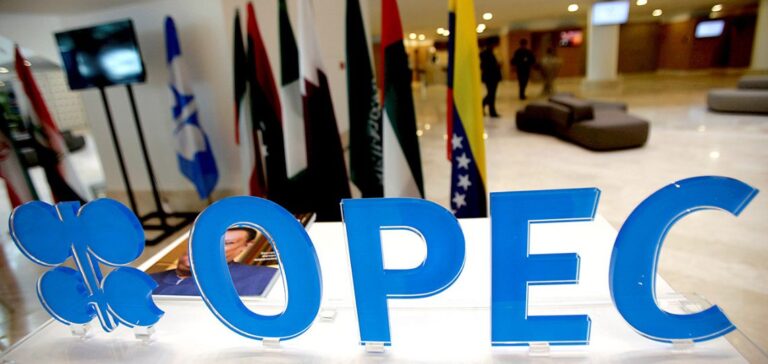OPEC (Organization of the Petroleum Exporting Countries) has announced a downward revision of its global oil demand forecasts for 2024.
According to the new estimates, demand should reach 104.32 million barrels per day (mb/d), a decrease of 135,000 barrels per day compared with the July forecast.
This readjustment is mainly due to the slowdown in the Chinese economy, whose growth in the second quarter of 2024 was below expectations, after a solid performance in the first quarter. China, the world’s second-largest oil consumer, plays a crucial role in balancing the global energy market.
The slowdown in its economic growth is raising concerns about the strength of oil demand in the months ahead.
This revision, albeit moderate, reflects an increased caution on the part of market players in the face of an uncertain economic outlook.
Impact on oil markets: a climate of volatility
Uncertainties surrounding the Chinese economy have already begun to affect oil markets, putting downward pressure on prices.
Between May and July 2024, oil prices plummeted as investors speculated on lower demand.
This dynamic temporarily dampened the price rise seen at the start of the year, as the oil sector continues to recover from the disruption caused by the COVID-19 pandemic.
OPEC nevertheless anticipates robust demand for transport fuels, particularly in the aviation sector.
The cartel also mentions that climatic events, such as the hurricane season, as well as maintenance operations at refineries, could limit supply in the coming months, potentially contributing to a recovery in prices in the second half of the year.
Medium-term outlook: non-OECD demand provides support
For 2025, OPEC is maintaining its forecast for growth in world oil demand, estimating that it will reach 106.11 mb/d, an increase of 1.8 mb/d on 2024.
This increase is expected to be driven mainly by non-OECD (Organisation for Economic Co-operation and Development) countries, where energy demand continues to grow at a sustained pace.
Economic uncertainties, particularly in China, remain a critical factor to be closely monitored.
The global oil market could see its equilibrium upset in the event of more pronounced economic fluctuations, and the ability of other emerging economies to absorb any fall in Chinese demand will be decisive in maintaining current forecasts.
OPEC remains vigilant to the multiple variables influencing global oil demand, including geopolitical tensions, technological advances, and efforts to decarbonize the world’s economies.
Developments in these areas will continue to shape the global energy landscape in the years ahead.






















